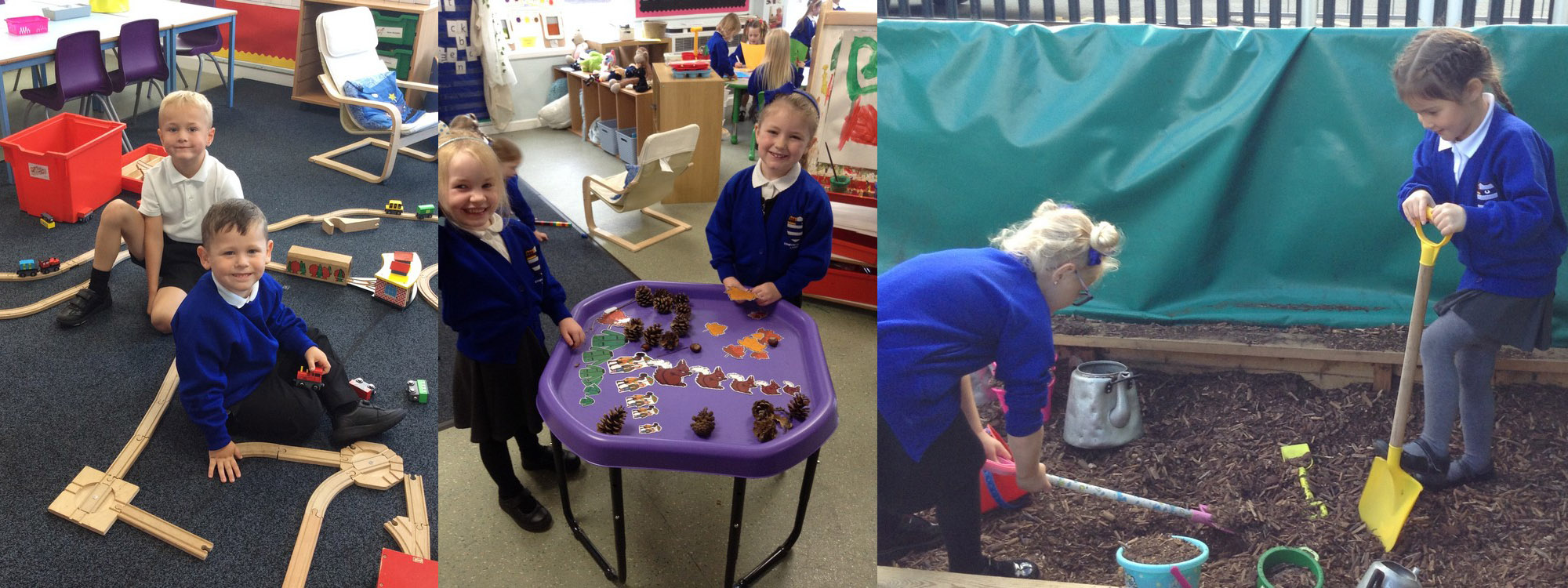
Our Early Years Curriculum
As a child enters our Reception Year at Laceby Stanford Primary Academy, he/she will work within the Areas of Learning. These areas are part of the Early Years Foundation Stage that guides children from birth to 5 years of age.
The areas of learning and development in the Early Years.
There are seven areas of learning and development that must shape educational programmes in early years’ settings. All areas of learning and development are important and inter-connected. Three areas are particularly crucial for igniting children’s curiosity and enthusiasm for learning, and for building their capacity to learn, form relationships and thrive. The prime areas are:
- communication and language;
- physical development; and
- personal, social and emotional development.
We also support children in four specific areas, through which the three prime areas are strengthened and applied. The specific areas are:
- literacy;
- mathematics;
- understanding the world; and
- expressive arts and design.
Our EYFS activities and experiences for children include the following:
- Communication and language development involves giving children opportunities to experience a rich language environment; to develop their confidence and skills in expressing themselves; and to speak and listen in a range of situations.
- Physical development involves providing opportunities for young children to be active and interactive; and to develop their co-ordination, control, and movement. Children must also be helped to understand the importance of physical activity, and to make healthy choices in relation to food.
- Personal, social and emotional development involves helping children to develop a positive sense of themselves, and others; to form positive relationships and develop respect for others; to develop social skills and learn how to manage their feelings; to understand appropriate behaviour in groups; and to have confidence in their own abilities.
- Literacy development involves encouraging children to link sounds and letters and to begin to read and write. Children must be given access to a wide range of reading materials (books, poems, and other written materials) to ignite their interest.
- Mathematics involves providing children with opportunities to develop and improve their skills in counting, understanding and using numbers, calculating simple addition and subtraction problems; and to describe shapes, spaces, and measures.
- Understanding the world involves guiding children to make sense of their physical world and their community through opportunities to explore, observe and find out about people, places, technology and the environment.
- Expressive arts and design involves enabling children to explore and play with a wide range of media and materials, as well as providing opportunities and encouragement for sharing their thoughts, ideas and feelings through a variety of activities in art, music, movement, dance, role-play, and design and technology.
Please follow this link to view the Early Years Curriculum.
If you would like any additional information about the Early Years Curriculum, please speak to your child's class teacher.
